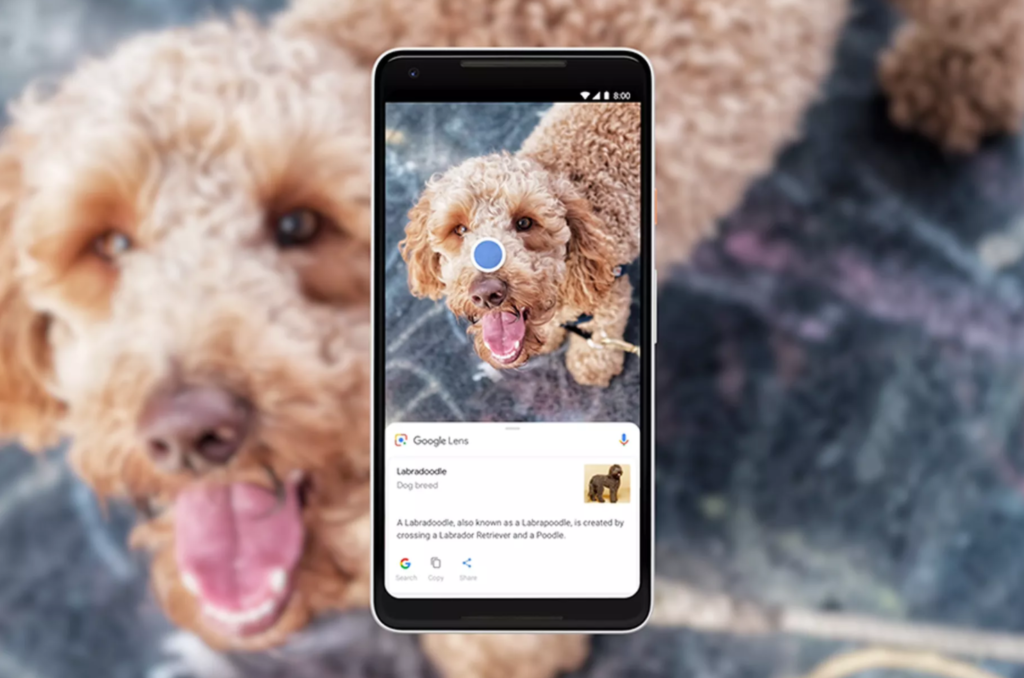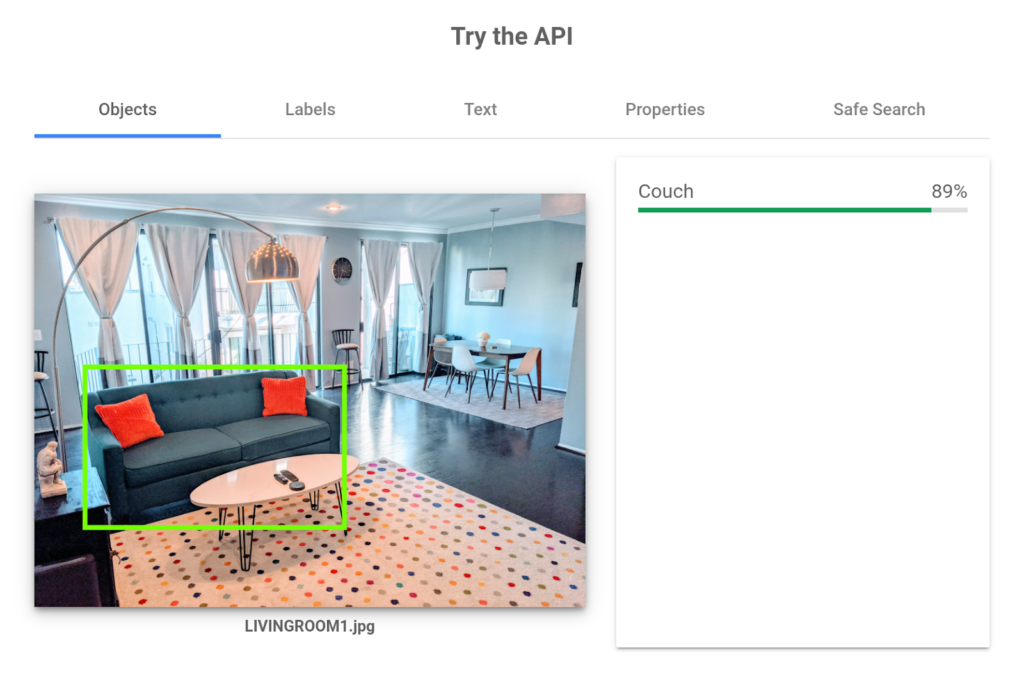- As machine learning for SEO continues to play an essential role in image and video indexing, marketers and creators must learn to prioritize visual optimization.
- Successful visual creators will soon need to employ best practices and cutting edge technical tools like Google Cloud Vision to optimize their media across platforms.
- Increasing advances in AI SEO will demand a more selective approach to link building.
- Artificial intelligence and automation can enhance the personalization of digital marketing campaigns in various ways.
In part one of this series, we discussed machine learning as a concept, its impact on SEO, and our predictions on three key facets of SEO that will be vastly transformed by artificial intelligence: search rankings, voice search, and content. In the second part of this series, we explore our predictions for images and video, backlinks, and personalization. Read on for a deep dive into everything AI SEO has to offer for SEO specialists, like us, and SEO clients, like you.
Machine learning and SEO: Our predictions (#4-6)
As mentioned in part one, machine learning for SEO is by no means limited to the following, but they represent fundamental considerations of a forward-looking SEO strategy.
4. Images and Video
Google has become a leader in computer vision and makes practical applications across both search and video hosting algorithms. YouTube’s Content ID system in particular has made strides using artificial intelligence to visually fingerprint content in real-time.
Since 2017, Google promised and delivered “vision-based computing capabilities that can understand what you’re looking at and help you take action.” Google Lens was soon deployed in the Google Assistant and Photos app, with various updates to follow.

In early 2021, OpenAI revealed it had extended the aforementioned GPT-3 with two new models that combine NLP with image recognition to give its AI a better understanding of everyday concepts. This 12-billion-parameter neural network not only understands text captions, but generates images to match them. Even concepts as foreign as “a baby daikon radish in a tutu walking a dog” aren’t outside the realm of GPT-3’s imagination.

Video has long been elusive to search engine indexing, being a purely visual medium. Computer Vision has been the holy grail for video content marketers, promising a slew of new opportunities to promote video content and target key audiences.
As machine learning for SEO continues to play an essential role in image and video indexing, marketers and creators must learn to prioritize visual optimization. Beyond simple keyword research and tagging, the production of visual content itself may soon require specialized skills beyond the camera.

Not unlike authors who produce blog and article content with SEO in mind, successful visual creators will soon need to employ best practices and cutting edge technical tools like Google Cloud Vision to optimize their media across platforms. We anticipate the day artificial intelligence may even become an essential tool in the creation of entirely original visual content.
5. Backlinks
Increasing advances in AI SEO will demand a more selective approach to link building, lest they become vulnerable to demotion by an evolving algorithm as inferior in relevance, readership, and retention. The Google Panda machine learning algorithm update directly targets spam links and black hat link building practices — and it does so with increasing efficiency.
The narrow intelligence of today’s AI SEO tools cannot yet automate quality link building for SEO specialists. However, they’re immensely practical at enhancing effectiveness at each stage of the process from prospecting partners to benchmarking and keyword analysis. More importantly, as AI-powered SEO tools in practice today continue learning to improve, they’re likely to develop a predictive capability of critical variables that reliably impact Google’s ranking.
Machine learning for SEO will chart a path toward link building that combines good old-fashioned relationship building with highly technical ingenuity. SEO specialists in the age of AI must cull data and leverage the best available tools like IBM Watson Studio and the Google Cloud AI platform to build new resources on the path to maximum relevance and pure organic traffic.
6. Personalization
AI personalization is the practice of inferring various segments of customer data and extracting valuable insights from them. Cisco predicts continued growth of global consumer data traffic to the tune of 278.1 Exabytes per month in 2021, up from 96.1 Exabytes per month in 2016.
This unfathomable amount of data demands machine learning for SEO. Such use of artificial intelligence and automation can enhance the personalization of digital marketing campaigns in various ways.
Google has made no secret of its plans to use its deep learning neural network to bring personalized search results to new levels. While the search engine giant already behaves like Big Brother with an eye on what you’ve searched and where you are, its plans are to accomplish what might seem impossible to some. AI can be used to proactively recommend specific search topics or deliver personalized results before the user even thinks of them.
More and more businesses are using enterprise AI tools and partnerships to apply data with demonstrable results. Marketers presently use AI to customize customer experience through personalized page content, demographic-specific offers, re-targeted ads, and even uncanny chatbot conversations more likely to lead to conversion. Deep learning is capable of analyzing copious customer data points throughout the interactive experience — not just on-page, but even separate browsing and social media behavior. This means a customer’s present actions are recorded and parsed as much as their historical and predicted future ones. As the data volume increases, AI will continue learning to improve personalizing experiences and content with greater relatability and impact.
Machine learning in action: H&M’s Kik chatbot
Chatbots are an excellent example of how the combination of machine learning technologies will continue learning to improve how to identify, retain and convert users. Some of the most impressive eCommerce chatbots today have actually been in use for some time. H&M’s Kik chatbot is among the more widely recognized case studies for success, having been statistically linked to increased sales since its inception. New achievements in NLP will compound boosts in the delivery speed and interpretation of customer data. Chatbots rely on this constant improvement to drive product suggestions, read intent in real-time, and make changes to increase the chances of a transaction.

We foresee no slowing in the scale and diversity of customer data points, and limitless opportunities to apply improving NLP to gain more and more granular personalization. Not only will chatbot interaction become more conversational, but prospects will be identified earlier with greater accuracy and insight. This predictive analysis won’t just stop at demographic and transactional history, but authentic customer sentiment will become as easily inferred as any other point of data.
Get smart or get left behind
The bottom line is, no one can accurately predict the strides or limitations AI will present on its journey toward an authentic general intelligence. Today’s thought leaders may tout human emotion and intelligence as forever elusive from the grasp of machine intelligence, but the reality is that although these are distant goals — they are not altogether impossible. What is certain is that the field of AI SEO will only become more technical than ever before. SEO will continue to drive traffic, while AI will ever improve at increasing conversions.
Redefine Marketing Group comprises forward-thinking analysts and tech forecasters invested in the application of machine learning for SEO as part of a progressive digital marketing strategy. Our team understands not just the fantastic potential of this technology, but also its immediate impact on the practical work we do as a human resource for clients. Those brands unafraid to venture into this new frontier will find a ready and informed partner in Redefine Marketing Group — contact us today.





